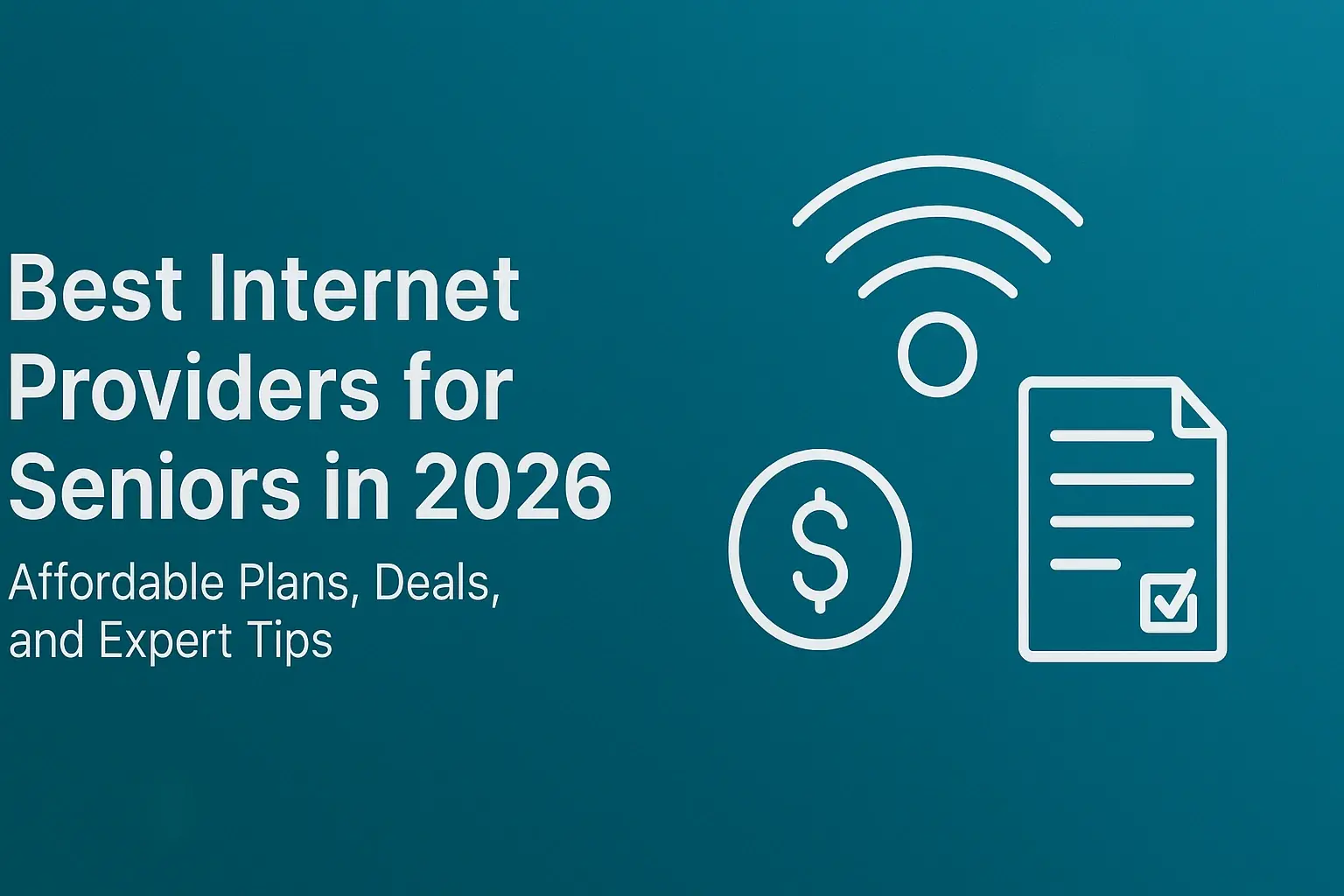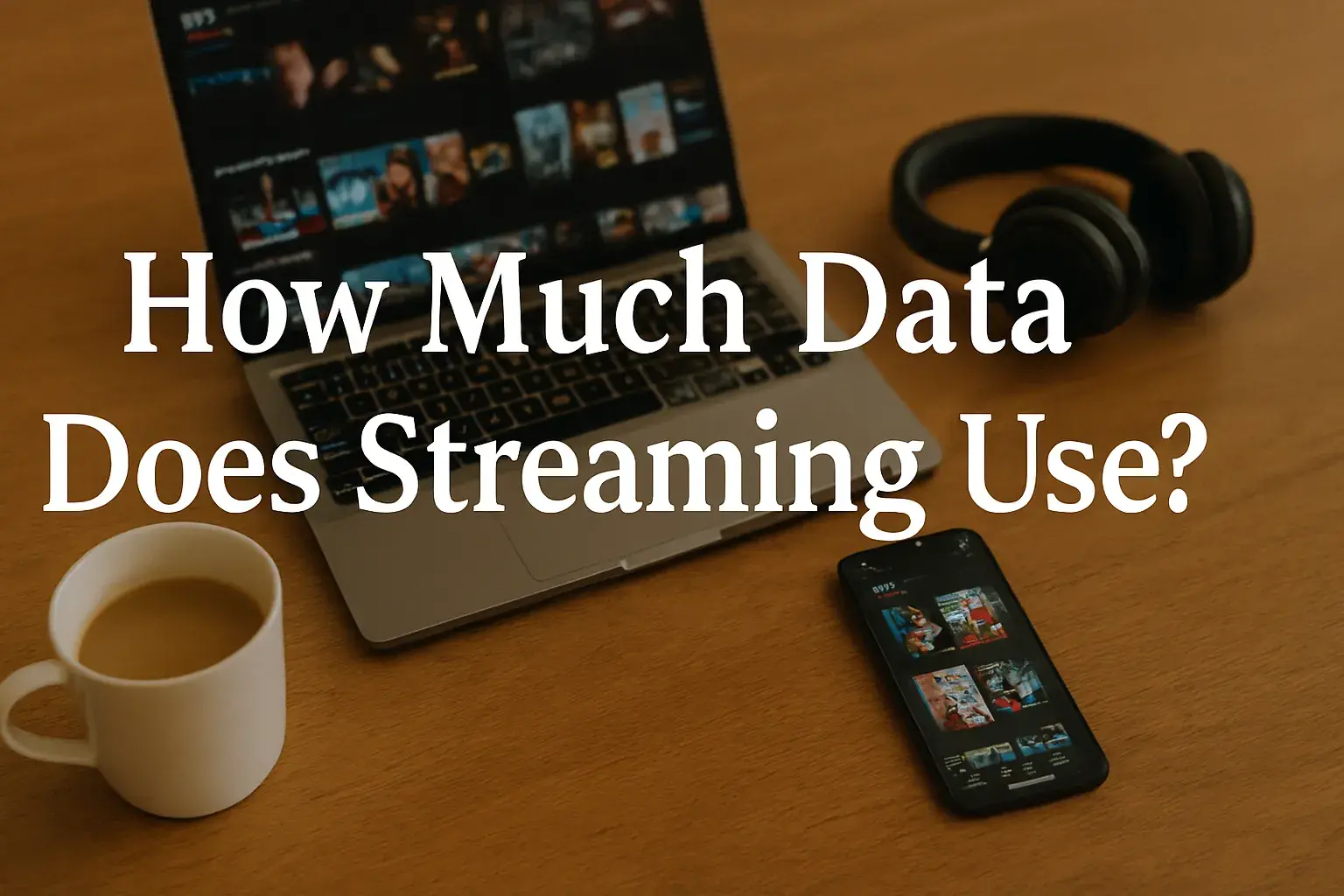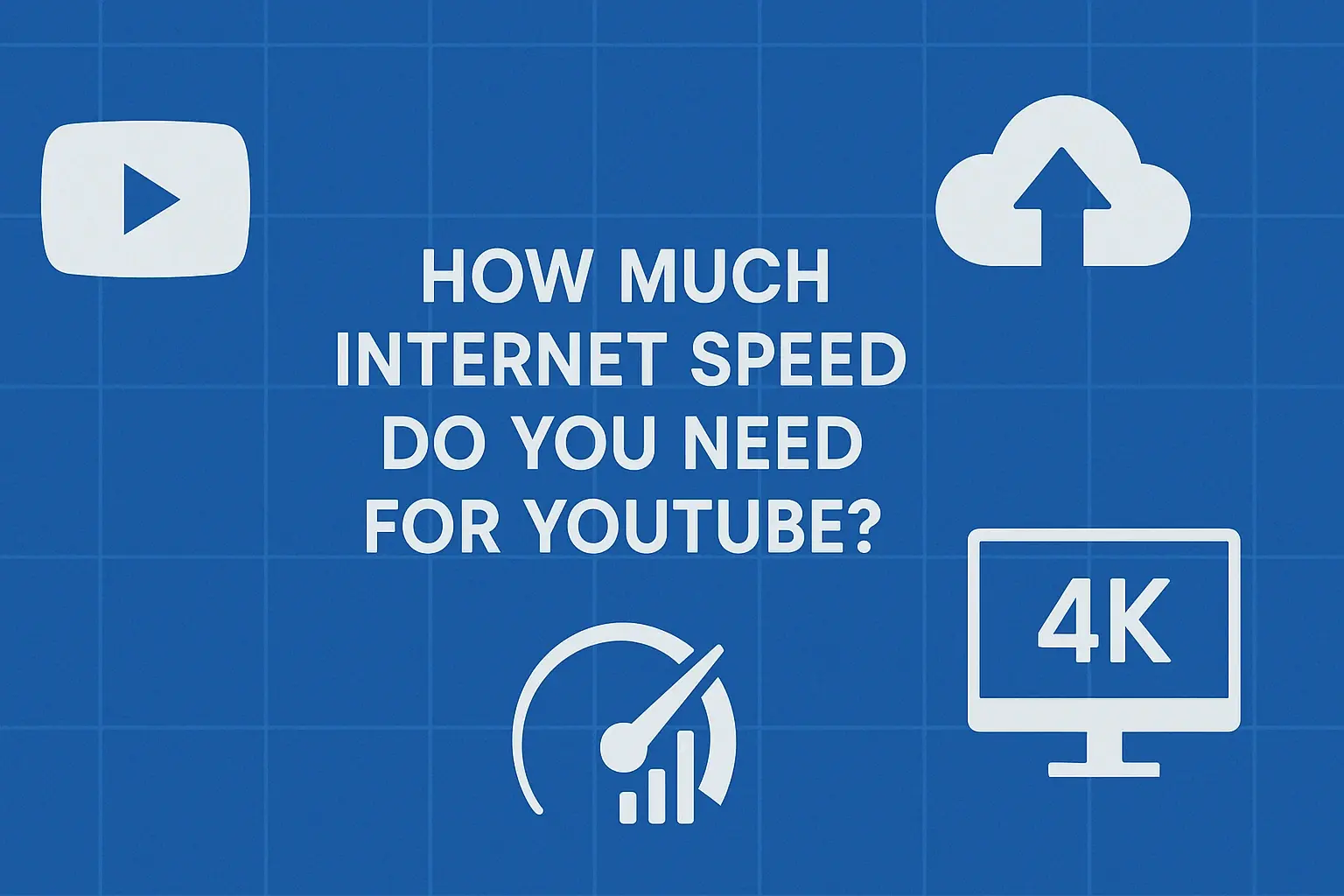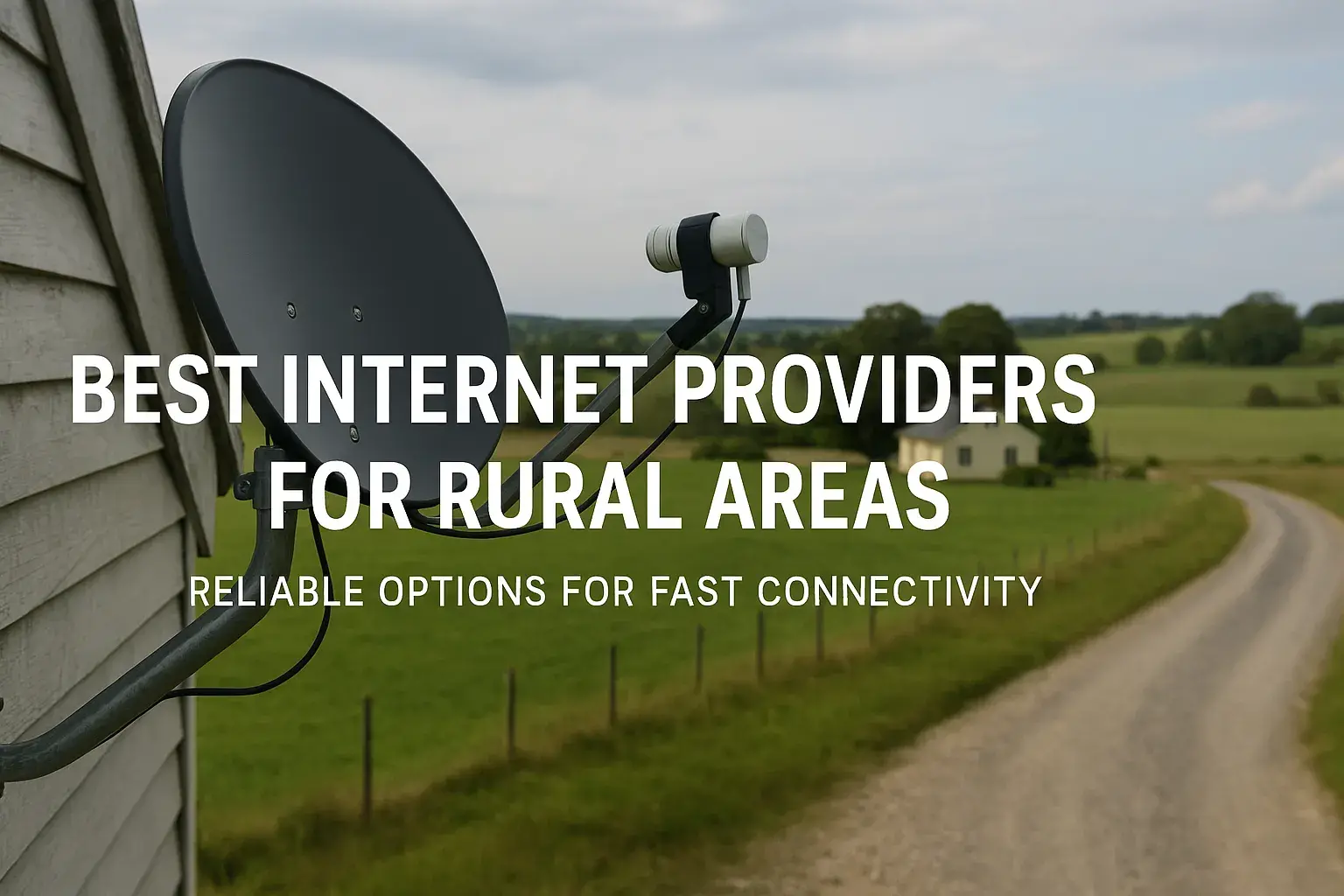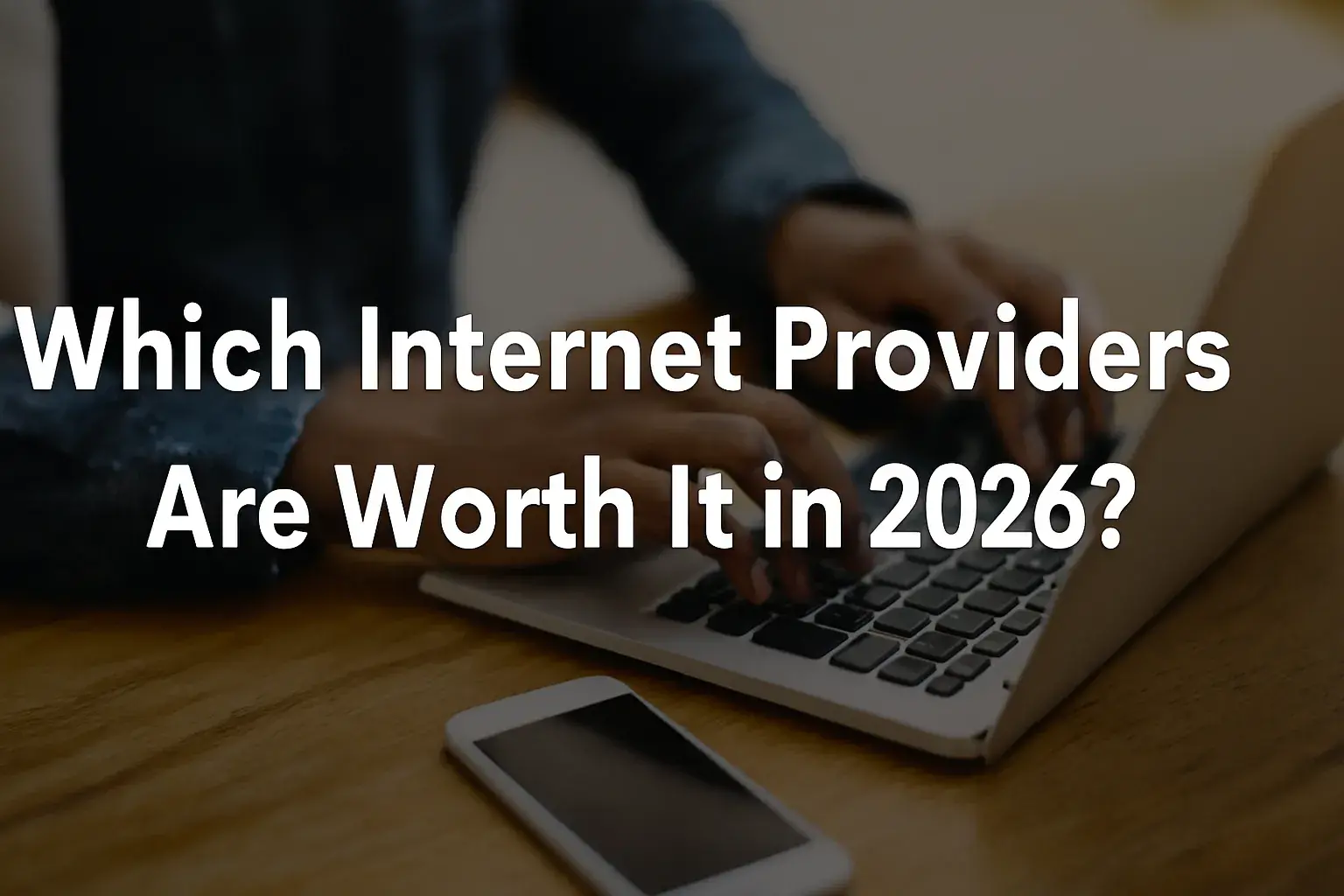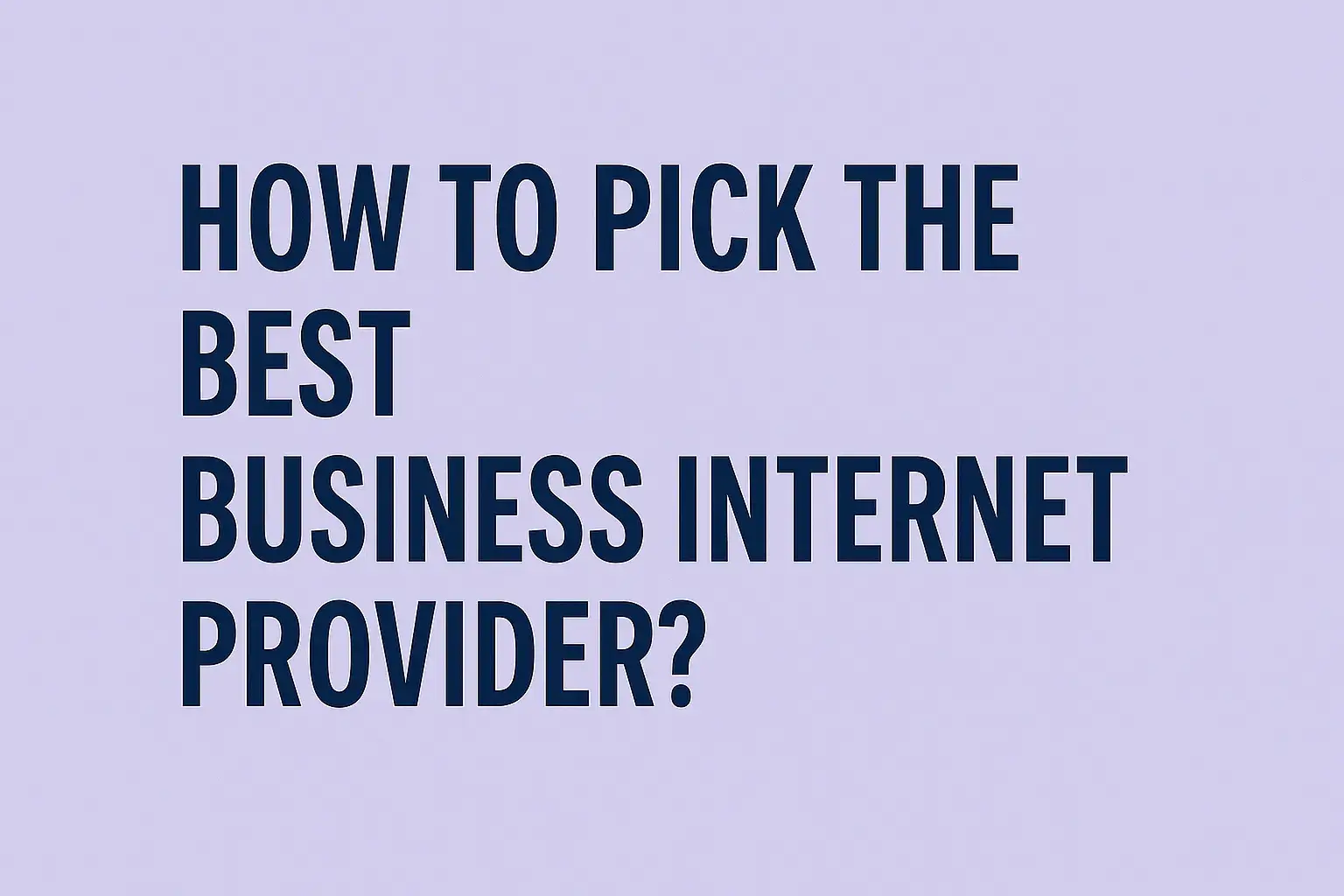
Introduction
In 2025, a fast and reliable internet connection is the backbone of any successful business, whether it’s a small startup, a growing enterprise, or a large corporation. From processing online transactions to hosting video conferences and managing cloud-based applications, your internet service provider (ISP) plays a critical role in ensuring seamless operations. With hundreds of ISPs offering thousands of plans, choosing the right one can feel overwhelming. This comprehensive guide simplifies the process by outlining key factors to consider, highlighting top business internet providers for 2025, and providing practical steps to make an informed decision. We’ll also address common questions in an FAQ section to help you select a provider that aligns with your business needs.
Why Choosing the Right Business Internet Provider Matters
A reliable internet connection is essential for business success. Downtime can lead to lost revenue, frustrated customers, and disrupted workflows. For example, a retail store relying on point-of-sale systems or a design agency uploading large files needs a provider that delivers consistent performance. The right ISP ensures:
- Productivity: Fast speeds support efficient operations, from email to cloud-based software.
- Customer Experience: Reliable internet prevents delays in transactions or customer support.
- Scalability: A provider that grows with your business avoids costly upgrades or disruptions.
- Security: Robust security features protect sensitive business data.
Key Factors to Consider When Choosing a Business Internet Provider
Selecting the best business internet provider requires evaluating several critical factors. Here’s a detailed look at each:
1. Speed and Bandwidth
Your business’s internet speed and bandwidth needs depend on its size and activities. According to Business.org, speeds range from 25 Mbps for basic tasks to 1 Gbps for heavy usage. Consider:
- Usage Patterns: Small businesses with basic needs (e.g., email, browsing) may suffice with 50–100 Mbps. Larger firms with video conferencing, cloud backups, or multiple users need 200 Mbps or more.
- Number of Devices: Count connected devices, including computers, phones, and IoT devices like security cameras.
- Applications: VoIP, point-of-sale systems, or large file transfers require higher bandwidth.
2. Reliability and Uptime
Downtime can be costly, especially for businesses reliant on online transactions. Look for providers with:
- High Uptime Guarantees: Aim for 99.9% or better, often backed by Service Level Agreements (SLAs).
- Backup Options: Providers like Comcast offer 4G LTE failover to maintain connectivity during outages (BroadbandNow.com).
- Infrastructure: Fiber-optic networks (e.g., AT&T, Verizon) are generally more reliable than DSL or cable.
3. Scalability
As your business grows, your internet needs may increase. Choose a provider that offers:
- Flexible Plans: Easily upgrade speeds or add services without major disruptions.
- Future-Proofing: Providers with fiber or 5G options can support emerging technologies like AR/VR or cloud computing.
4. Cost and Pricing Structure
Understand the total cost of ownership, including:
- Monthly Fees: Plans start at $39.99/month for basic services and can exceed $300/month for high-speed fiber (USA Today).
- Installation and Equipment: Installation fees can range from $50–$100, and equipment rental (e.g., routers) may cost $10–$20/month.
- Promotional Pricing: Many providers offer introductory rates that increase after 12–24 months.
- Hidden Fees: Check for overage charges, early termination fees, or taxes.
5. Customer Support
Reliable support is crucial for resolving issues quickly. Look for:
- 24/7 Availability: Ensure support is accessible via phone, email, or chat at all times.
- Reputation: Check customer reviews on sites like ConsumerAffairs for insights into support quality.
- Dedicated Business Support: Providers like Comcast are noted for strong business customer service (BroadbandNow.com).
6. Security Features
Protecting business data is critical. Ensure the provider offers:
- Firewalls and VPNs: Safeguard against cyber threats.
- DDoS Protection: Prevents distributed denial-of-service attacks.
- Managed Security: Some providers, like Comcast, include advanced security features like xFi Advanced Security.
7. Contract Terms
Contract terms can impact flexibility. Consider:
- Length: Some providers require 1–2-year contracts, while others, like Spectrum, offer no-contract options (CNET).
- Termination Fees: Early termination can cost $10–$20 per remaining month.
- Trial Periods: Verizon offers a 30-day satisfaction guarantee for some plans (Verizon).
8. Additional Services
Bundled services can add value:
- VoIP: Providers like AT&T and Spectrum offer voice-over-IP for business phone systems.
- Cloud Solutions: AT&T provides cloud storage and backup options.
- Managed Wi-Fi: Ensures optimal network performance for multiple devices.
| Factor | Key Considerations | Why It Matters |
|---|---|---|
| Speed and Bandwidth | Match speeds to usage (e.g., 50 Mbps for small businesses, 1 Gbps for large firms) | Ensures smooth operations for all tasks |
| Reliability | High uptime (99.9%), 4G LTE backup | Minimizes costly downtime |
| Scalability | Flexible plans, fiber/5G options | Supports business growth |
| Cost | Transparent pricing, no hidden fees | Fits budget and avoids surprises |
| Customer Support | 24/7 access, strong reputation | Quick issue resolution |
| Security | Firewalls, VPNs, DDoS protection | Protects sensitive data |
| Contract Terms | Flexible terms, trial periods | Offers flexibility and risk-free trials |
| Additional Services | VoIP, cloud, managed Wi-Fi | Enhances operational efficiency |
Top Business Internet Providers for 2025
Based on recent reviews and industry insights, here are five top business internet providers for 2025:
1. AT&T Business Fiber
- Why Choose: Offers fiber-optic speeds up to 10 Gbps, ideal for data-intensive businesses (AT&T).
- Key Features: Symmetrical speeds, no data caps, VoIP, and cloud solutions.
- Best For: Large enterprises or media companies needing ultra-fast uploads and downloads.
- Pricing: Starts at $70/month for 300 Mbps, up to $225/month for 5 Gbps.
- Availability: Expanding but limited to urban and suburban areas.
2. Comcast Business Internet
- Why Choose: Offers cable plans from 150 Mbps to 1.25 Gbps with 4G LTE backup (BroadbandNow.com).
- Key Features: xFi Advanced Security, managed Wi-Fi, bundling with mobile/TV.
- Best For: Small to medium-sized businesses needing reliable, feature-rich service.
- Pricing: Starts at $69.99/month for 150 Mbps.
- Availability: Covers 39 states, widely accessible.
3. Verizon Fios Business
- Why Choose: Fiber-optic service with speeds up to 2 Gbps, known for reliability and customer service (Business.org).
- Key Features: Symmetrical speeds, no data caps, 30-day satisfaction guarantee.
- Best For: Businesses in Verizon’s coverage areas needing high upload speeds.
- Pricing: Starts at $69/month for 200 Mbps.
- Availability: Limited to select urban/suburban areas.
4. Spectrum Business Internet
- Why Choose: Cable internet with speeds up to 1 Gbps, no data caps, and no contracts in most areas (CNET).
- Key Features: Affordable pricing, VoIP, and TV bundling.
- Best For: Budget-conscious businesses seeking flexibility.
- Pricing: Starts at $49.99/month for 300 Mbps.
- Availability: Covers 41 states, highly accessible.
5. CenturyLink Business Internet
- Why Choose: Offers fiber (up to 940 Mbps) and DSL options with Price for Life guarantees (Business.com).
- Key Features: Managed Wi-Fi, 24/7 support, VoIP options.
- Best For: Businesses seeking long-term pricing stability.
- Pricing: Starts at $65/month for 200 Mbps.
- Availability: Available in 36 states, with fiber in select areas.
| Provider | Connection Type | Max Speed | Starting Price | Best For | Availability |
|---|---|---|---|---|---|
| AT&T Business Fiber | Fiber | 10 Gbps | $70/month | Large enterprises | Urban/suburban |
| Comcast Business | Cable | 1.25 Gbps | $69.99/month | Small/medium businesses | 39 states |
| Verizon Fios Business | Fiber | 2 Gbps | $69/month | High upload needs | Select areas |
| Spectrum Business | Cable | 1 Gbps | $49.99/month | Budget-conscious | 41 states |
| CenturyLink | Fiber/DSL | 940 Mbps | $65/month | Price stability | 36 states |
Steps to Choose the Right Provider
Follow these steps to select the best business internet provider:
1. Assess Your Needs
- Evaluate Usage: List activities like video conferencing, cloud backups, or online transactions. Estimate bandwidth needs (e.g., 25 Mbps for basic tasks, 1 Gbps for heavy usage).
- Count Devices: Include all connected devices, from computers to IoT systems.
- Plan for Growth: Anticipate future needs as your business expands.
2. Research Providers
- Use tools like Compare the Market to check availability by entering your postcode.
- Read reviews on sites like Which? for customer satisfaction insights.
3. Compare Plans
- Speed and Reliability: Ensure the plan meets your bandwidth needs and offers high uptime.
- Cost vs. Value: Balance monthly costs with features like unlimited data or VoIP.
- Scalability: Confirm the provider can upgrade services as needed.
4. Review Contract Terms
- Check for contract length, early termination fees, and trial periods.
- Ask about promotional pricing and post-promo rate increases.
5. Evaluate Customer Support
- Verify 24/7 support availability and response times.
- Check reviews for support quality (HighSpeedInternet.com).
6. Test the Service
- If possible, test speeds at your location using a trial period or temporary setup.
- Providers like Verizon offer 30-day satisfaction guarantees.
Comparing Connection Types
Different connection types suit different business needs:
- Fiber-Optic: Offers the fastest speeds (up to 10 Gbps) and symmetrical uploads/downloads, ideal for large businesses (CNET).
- Cable: Widely available, with speeds up to 1.25 Gbps, suitable for small to medium businesses.
- DSL: Slower (up to 100 Mbps) and less reliable, but affordable for basic needs.
- 5G: Emerging option with speeds up to 300 Mbps, good for mobile or remote businesses (T-Mobile).
| Connection Type | Max Speed | Pros | Cons |
|---|---|---|---|
| Fiber-Optic | 10 Gbps | Fast, symmetrical, reliable | Limited availability |
| Cable | 1.25 Gbps | Wide availability, affordable | Slower uploads, data caps |
| DSL | 100 Mbps | Low cost, available | Slow, less reliable |
| 5G | 300 Mbps | Flexible, no cables | Variable speeds, coverage |
FAQ Section
Q1: What is the difference between residential and business internet plans?
Business plans offer higher reliability, faster speeds, static IP addresses, and dedicated support, often with SLAs for uptime guarantees, unlike residential plans designed for lighter use.
Q2: How much internet speed does my business need?
- Basic tasks (email, browsing): 25 Mbps
- VoIP, streaming: 50–100 Mbps
- Multiple users, cloud services: 200 Mbps+
- Heavy data transfers, large teams: 1 Gbps+
Q3: Are there additional costs to consider?
Yes, watch for installation fees ($50–$100), equipment rental ($10–$20/month), early termination fees, and overage charges if data caps apply.
Q4: How can I ensure reliable internet service?
Choose providers with 99.9% uptime guarantees, robust infrastructure (e.g., fiber), and backup options like 4G LTE. Check reviews for real-world reliability.
Q5: Can I negotiate prices with providers?
Yes, especially for long-term contracts or larger businesses. Ask about discounts or bundling options to reduce costs.
Q6: What security features are essential?
Look for firewalls, VPNs, DDoS protection, and managed security services to protect your network and data.
Q7: How do I check fiber availability?
Use provider websites or tools like AT&T’s availability checker to confirm fiber access at your location.
Q8: Why might my business need a static IP address?
Static IPs are useful for hosting servers, running VPNs, or applications requiring a consistent IP address, unlike dynamic IPs that change periodically.
Q9: How important is customer support?
Critical. 24/7 support with quick response times minimizes downtime, ensuring business continuity.
Q10: Is switching providers easy?
Switching can be straightforward, but check for early termination fees and ensure the new provider meets your installation timeline.
Conclusion
Choosing the best business internet provider in 2025 requires careful consideration of your business’s needs, from speed and reliability to cost and support. By assessing your requirements, researching providers, and comparing plans, you can select a service that supports your operations and growth. Top providers like AT&T, Comcast, Verizon, Spectrum, and CenturyLink offer diverse options for various business sizes and budgets. Regularly review your internet needs to ensure your provider continues to meet your evolving demands.
